Overview
The Complex General Surgical Oncology (CGSO) Fellowship program at Mayo Clinic in Rochester, Minnesota, is aimed at training the next generation of leaders in surgical oncology. The world-renowned Mayo Clinic is the largest integrated, not-for-profit medical group practice in the world. In 1973, Mayo Clinic was designated by the National Cancer Institute as one of the original eight comprehensive cancer centers.
Mayo Clinic has a long history of academic excellence and delivers unparalleled cancer care to patients regionally, nationally, and internationally. Mayo Clinic consistently ranks as the top hospital in the world and in the top three cancer centers in the United States. Mayo Clinic Cancer Center sees more than 100,000 cancer patients annually.
Our staff is dedicated to innovative minimally invasive surgical approaches including laparoscopic and robotic as well as open complex multivisceral resections, en-bloc vascular resections and reconstructions, and regional perfusion therapies such as hepatic artery infusion pumps (HAIP) and hyperthermic intraperitoneal chemotherapy (HIPEC).
Unique program highlights include:
- Clinical rotations adhere to an apprenticeship model with the fellows working directly with an attending, while leading a clinical team that includes junior residents, advanced practice providers (APPs), and medical students
- High volume and wide breadth of operative experience while having protected time to attend clinic, educational conferences, and research
- An academic environment aimed at developing the next generation of surgeon scientists and leaders in surgical oncology by providing access to basic, clinical, and translational scientists and resources
- A comprehensive experience across the entire spectrum of oncology including rotations with world leaders in medical oncology, radiation oncology, pathology, and palliative care
/prod01/channel_2/media/mccms/content-assets/academics/residencies-and-fellowships/complex-general-surgical-oncology-fellowship-mn/1024X512General_Surgery.jpg)
Accreditation, certification, program history
Accreditation
This program fulfills the training requirements as defined by the American Board of Surgery and is accredited by the Accreditation Council for Graduate Medical Education (ACGME).
Certification
American Board of Surgery CGSO qualifying and certifying exams.
Program history
While the Complex General Surgical Oncology Fellowship program is new with its inaugural fellow starting in 2024, Mayo Clinic is not new to medical education – with over 450 training programs across every medical, surgical, and health sciences specialties, including a general surgery residency, hepatobiliary and pancreas fellowship, a breast surgical oncology fellowship, colorectal surgery fellowship, and an endocrine fellowship. We will match one CGSO fellow per year into this two-year program.
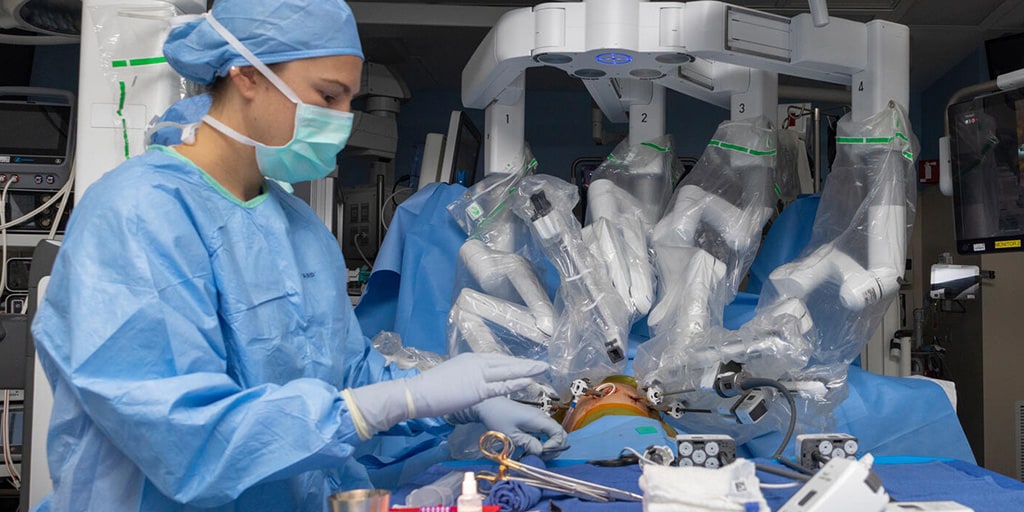
Application process
Positions
There is one position available each year on a competitive basis in the Complex General Surgical Oncology Fellowship at Mayo Clinic in Rochester, Minnesota.
All qualified applicants interested in a comprehensive, challenging, and innovative surgical oncology fellowship are welcome to apply. Women and individuals underrepresented in medicine (URM), are encouraged to apply.
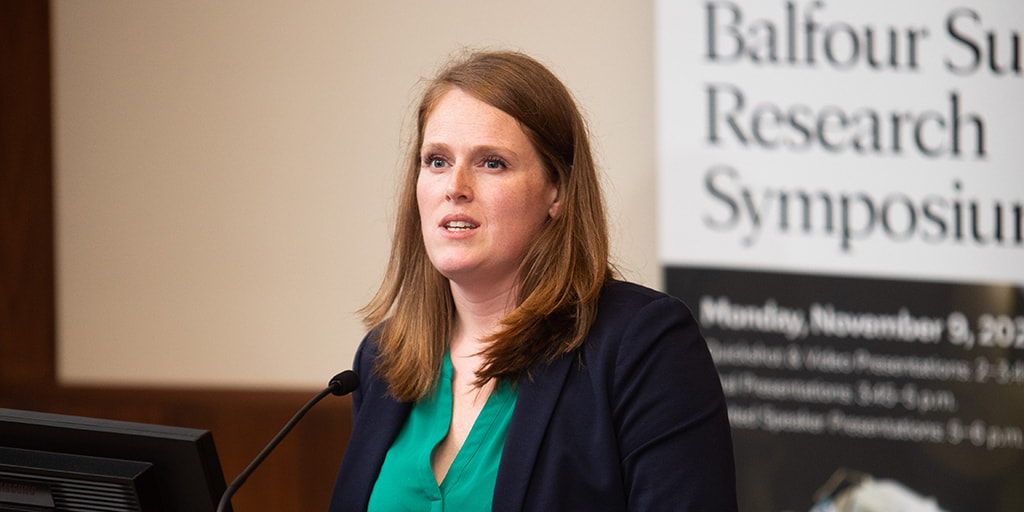
Qualifications
Applicants for the CGSO program must have completed an Accreditation Council for Graduate Medical Education (ACGME) five-year General Surgery Residency program.
Also see general admissions requirements for Mayo Clinic School of Graduate Medical Education.
How to apply
Interested applicants should apply through Electronic Residency Application Service (ERAS).
The following documents should be included with the application:
- A current curriculum vitae
- Personal statement
- Three letters of recommendation
- Medical school transcripts
- ABSITE scores
- USMLE scores
- Recent photograph
Candidates will be selected for interviews and notified in early March.
Mayo Clinic will participate in the national match program for Complex General Surgical Oncology administered by the National Resident Matching Program.
adult cancer hospital in the nation (U.S. News, 2025-26)
hospital in Minnesota and nationally recognized on the Best Hospitals Honor Roll (U.S. News, 2025-26)
preceptor model
Curriculum
Clinical training
You will be exposed to a wide breadth and a large volume of complex and minimally invasive surgical oncology cases designed to refine surgical skills, improve clinical judgment, and expand intellectual skills encompassing all aspects of oncology. You will be actively involved in the initial evaluation of new patients, treatment planning including sequencing of multidisciplinary therapy, minimally invasive and open surgical approaches, and postoperative and long-term follow-up.
This clinical experience, combined with numerous opportunities for research, provides graduates with a rich experience that prepares them to lead productive academic careers, and establish successful surgical oncology practices and training programs. Graduates will be well-poised to take on future leadership roles in surgical oncology.
Rotation schedule
| Rotation | Length |
|---|---|
| GI/PSM/Sarcoma surgery | 3 months |
| HPB/Sarcoma surgery | 7.5 months |
| Breast/Melanoma surgery | 3 months |
| Colorectal surgery | 1.5 months |
| Endocrine surgery | 1.5 months |
| Elective (Gyn Onc, Thoracic, or any above core rotations) | 1.5 months |
| Research | 6 months |
| Pathology* | 1.5 months |
| Medical Oncology* | 1.5 months |
| Radiation Oncology* | 1.5 months |
| Palliative Care* | 1.5 months |
*Part-time rotations combined with dedicated research time.
Rotation descriptions
Rotation descriptions
GI/PSM/Sarcoma: You will be assigned in a 1:1 preceptorship with a surgical oncologist who specializes in GI/PSM. You will develop experience with peritoneal surface malignancies including staging laparoscopy, laparoscopic HIPEC, PIPEC, open cytoreduction and HIPEC, IP port placement as well as other GI malignancies including GIST, NET, gastric cancer, etc. These rotations also include a high-volume exposure to gastric surgery including robotic total gastrectomies multi-visceral resections, double tract and j-pouch reconstructions, and gastric HIPEC.
HPB/Sarcoma: You will be assigned in a 1:1 preceptorship with a HPB surgeon. You will develop experience with complex liver, and pancreatic resections including vascular resections and reconstructions, hepatic artery infusion pump placement and management, splenectomy, and IORT for HPB malignancies. You will be exposed to a high volume of open, laparoscopic, and robotic HPB surgery. These rotations also include exposure to a high volume of retroperitoneal and truncal sarcoma surgery including multi-visceral resections, vascular resections, and reconstructions.
Breast/Melanoma: You will be assigned in a 1:1 preceptorship with a breast/melanoma surgeon. You will gain experience with the latest techniques in nipple-sparing and robotic mastectomy. You will rotate with a surgical oncologist who will perform all of the melanoma and high-risk cutaneous malignancy surgery as well as will gain exposure to tumor infiltrating lymphocyte (TIL) therapy and injectable therapies. Mayo Clinic is one of 50 approved sites approved for TIL.
Colorectal surgery: You will be assigned in a 1:1 preceptorship with a colorectal surgeon. You will develop experience with MIS and open oncologic colorectal resections including proctectomies, intraoperative radiation therapy (IORT), lateral pelvic lymph node dissection technique, and transrectal resection.
Endocrine surgery: You will be assigned in a 1:1 Preceptorship with endocrine surgery. You will gain experience with MIS adrenalectomy, thyroidectomy, pancreas enucleations, and radical neck dissection.
Research: You will have protected time for clinical research under the mentorship of 29 staff surgeons. Our faculty is actively involved in clinical trials, patient-reported outcomes, health disparities, surgical outcomes, and translational research. You will have access to statisticians and data analysts to help with research projects.
Pathology: We have world experts in oncologic pathology and a large active frozen section laboratory. You will gain insight into tumor margin and sentinel lymph node assessment, as well as rare pathology.
Medical Oncology: You will have the opportunity to work with the medical oncologist in your disease site of choice. Gaining both inpatient and outpatient experience with chemotherapy treatments for common and rare malignancies.
Radiation Oncology: You will gain experience with IORT, photon and proton beam radiation treatments, and planning.
Palliative care: You will collaborate with a full spectrum of care providers including primary care physicians, pharmacists, palliative care physicians and APPs, medical oncologists, dieticians, social workers, and chaplains to provide patient-centered symptomatic management for advanced malignancies.
Electives, didactic training, call frequency, procedures
Electives
You will have the opportunity in the second year for a six-week elective rotation in any of the core rotations or additional exposure in gynecologic surgery or basic/translational sciences.
Didactic training
Clinical conferences, small discussion groups, journal clubs, and one-on-one instruction are integral parts of the Complex General Surgical Oncology Fellowship. All fellows are required to attend morbidity and mortality conferences and Grand Rounds. Fellows are also required to attend Monday afternoon Surgical Oncology teaching conference. Protected time is provided.
During each subspecialty rotation, you also attend that subspecialty's weekly schedule of journal clubs, didactic presentations, and conferences dealing with patient management problems, mortality, and morbidity.
You are encouraged to attend national surgical oncology surgery meetings during your fellowship.
Lastly, you will be directly involved in multiple weekly tumor boards including presenting and discussing cases throughout their fellowship. This includes Pancreas Tumor Board, Gastroesophageal Tumor Board, Colorectal Tumor Boards, Cutaneous Malignancies Tumor Boards, Breast Tumor Boards, Endocrine Tumor Boards, and Sarcoma Tumor board.
Call frequency
The fellow call schedule is different for each rotation. Mayo Clinic follows the requirements of the Accreditation Council for Graduate Medical Education (ACGME) work hour restrictions, most likely resulting in two- to three-weekend home-call per six-week rotation block while on a surgical service. You are never on night float and do not provide Acute Care Surgery/Trauma coverage for the emergency department.
Procedures
You will have broad and comprehensive surgical experience with both MIS and open common and complex oncologic operations. This includes hepatic artery infusion pumps (HAIP), intraoperative radiation therapy (IORT), hyperthermic intraperitoneal chemotherapy (HIPEC), pressurized intraperitoneal aerosolized chemotherapy (PIPAC), radical multivisceral resections, and vascular resection and reconstructions, which are often performed independently by many of the Surgical Oncologist/HPB surgeons. Fellows will easily exceed minimum CGSO case volumes during their training. Video: Dr. Travis Grotz explains the steps of a robotic-assisted procedure.
Conferences, research opportunities
Conferences
The fellowship offers active involvement in numerous dedicated multidisciplinary tumor boards, including presenting cases in a multidisciplinary discussion format. Examples of tumors boards that fellows will routinely be involved in depending on the rotation include gastroesophageal, colorectal, sarcoma, pancreas, hepatobiliary, breast, melanoma, and endocrine tumors boards.
There is a twice monthly-run M&M conference in which fellows will present cases they were involved in. You will also participate in educational and journal club conferences relevant to rotating services. There are opportunities to participate in Quarterly Perfusion video conferences as well as didactics based on the SCORE CGSO curriculum.
Research opportunities
There are six months of dedicated research time. Mayo Clinic has immense research support services including access to clinical research, translational research labs, and basic sciences labs/cores. The Department of Surgery has its own statisticians and research coordinators.
The Kern Center for the Science of Health Care Delivery includes a rich resource of applied clinical informatics and data science. They have analysts with extensive experience in working with large databases including the American College of Surgeons (ACS) National Surgical Quality Improvement Program (NSQIP), National Cancer Data Base (NCDB), Surveillance, Epidemiology and End Results (SEER), Rochester Epidemiology Project (REP) and others. We have several surgeon scientists on staff with full basic and translational research labs as well as numerous PhD.
The Department of Surgery has numerous scientists with basic and translational research who are eager to collaborate and provide grant-writing mentorship to help future scientists develop a foundation to allow for the development of a basic/translational science lab after graduation.
The Mayo Clinic Cancer Center is very robust with hundreds of clinical trials available and collaboration through several cancer clinical trials networks including the Minnesota Cancer Clinical Trials Network (MCCTN), and the ALLIANCE for clinical trials in oncology. You will have the opportunity to write grants and be involved in clinical trial development if interested.
Additional opportunities, moonlighting, teaching opportunities
Additional training opportunities
You will have opportunities to participate in additional training programs including robotic training programs and the SSO Fellows Institute.
Moonlighting
Moonlighting is not permitted.
Teaching opportunities
You will routinely have a junior resident on service with you and be expected to supervise and teach junior residents basic surgical skills and techniques in the operating room as well as teach principles of patient care and cancer management in the clinic and on the hospital floor. You will also gain experience educating junior residents in conference and didactic sessions.
Evaluation, mentorship, facilities and locations
Evaluation
You will receive constructive and formative feedback from your attendings as well as peers and colleagues using MedHub. The program director meets with the fellows quarterly to review feedback, case logs, research progress, and overall progression in the program.
Mentorship
You will have assigned mentorship with the program director and associate program director but are strongly encouraged to seek out mentorship from the over 29 surgical staff involved in the training program. The PD and APD will meet with you regularly to assess goals and progress and career development.
Facilities and locations
You will work only at the Mayo Clinic Hospital in Rochester, MN. This includes two campuses (Saint Mary’s and Methodist), which are one mile apart and connected via shuttle. These two campuses offer over 100 cutting-edge surgical suites with DaVinci robotic surgery platforms, 4K laparoscopic equipment, and intraoperative radiation therapy. Both sites have complex endoscopy, interventional radiology, and other supportive services.

Belonging
At Mayo Clinic, we foster an inclusive working environment and embrace the diversity of all our trainees, faculty, staff, and patients. Our Office of Belonging offers tremendous resources to support our mission of maintaining a welcoming atmosphere for all our employees, including our learners. We strive to provide culturally appropriate care and do our part to reduce healthcare disparities.
/0x0:512x512/prod01/channel_2/media/studio-sites/mccms-reference-guide/512X5121573348_3801872_0024-(1).jpg)
Video: See yourself at Mayo Clinic
5:33
From the program director
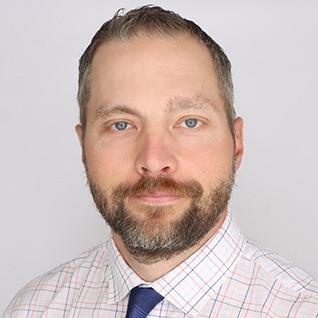 Welcome to the Complex General Surgical Oncology Fellowship program at Mayo Clinic in Rochester, Minnesota. Our faculty is comprised of world-renowned leaders in hepatobiliary and pancreas, breast, melanoma, sarcoma, gastrointestinal, and peritoneal surface malignancy surgery.
Welcome to the Complex General Surgical Oncology Fellowship program at Mayo Clinic in Rochester, Minnesota. Our faculty is comprised of world-renowned leaders in hepatobiliary and pancreas, breast, melanoma, sarcoma, gastrointestinal, and peritoneal surface malignancy surgery.
Our program offers exposure to some of the highest case volume, and complexity, in the country. The unique surgical apprenticeship model of teaching, didactic educational program, and research opportunities provide a robust environment to train the next generation of leaders in surgical oncology.
Our goal is to provide you with exposure to the full breadth of contemporary surgical oncology so you can confidently enter independent clinical practice, develop productive research programs, and lead successful training programs. We aspire to train the next generation of leaders in our field. Thank you for your interest in our program.
Travis Grotz, M.D.
Complex General Surgical Oncology Fellowship Program Director
Department and faculty
In addition to caring for patients in clinical practice, Mayo Clinic’s faculty is committed to teaching and facilitating the growth of medical and surgical knowledge. Many of our faculty members have published and lectured extensively and are highly regarded in their respective fields.
There are currently seven breast and melanoma faculty, seven HPB faculty, 11 CRS, and four endocrine surgery faculty who serve as our core faculty. We also have the opportunity for interested fellows to do an elective rotation with one of our eight gynecologic oncology faculty surgeons.
Complex general surgical oncology fellowship core faculty
 |
Travis Grotz, M.D.Program DirectorDr. Grotz completed his CGSO fellowship at MDACC and specializes in gastric cancer and peritoneal surface malignancies. He serves as the PI for several clinical trials in gastric cancer, peritoneal mesothelioma, and pseudomyxoma peritonei.
|
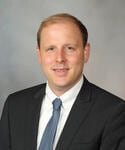 |
Cornelius Thiels, D.O., M.B.A.Associate Program DirectorDr. Thiels completed the surgical oncology fellowship at Memorial Sloan Kettering Cancer Center. His practice is focused on retroperitoneal sarcoma, pancreas surgery, and Hepatic Artery Infusion Pump (HAIP). Dr. Thiels serves as the PI for trials in the field of metastatic pancreas cancer and unresectable colorectal liver metastasis.
|
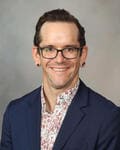 |
Kevin Behm, M.D.Dr. Behm did his fellowship at Mayo Clinic and has unique expertise in minimally invasive surgery including robotic, laparoscopic, and transanal techniques for both early and locally advanced cancers including robotic radical pelvic resections.
|
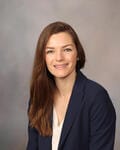 |
Sara Daniel, M.D.Dr. Daniel completed her CGSO fellowship at Stanford and specializes in peritoneal surface malignancies (PSM), GI tumors and retroperitoneal sarcomas. She is an innovator in the field of PSM, particularly with the utilization of pressurized intraperitoneal aerosolized chemotherapy (PIPAC).
|
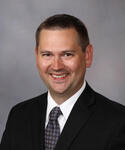 |
Trenton Foster, M.D.Dr. Foster trained at Mayo Clinic and Yale University School of Medicine. His practice is focused on endocrine surgery and he has a passion for surgical education.
|
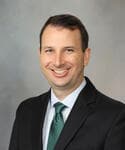 |
Jeffery Johnson, M.D.Dr. Johnson completed a surgical oncology fellowship at the University of North Carolina. He has expertise in breast cancer and melanoma. Dr. Johnson performs minimally invasive inguinal lymphadenectomies and TVEC injections for advanced melanoma. Dr. Johnson is the surgical lead for tumor infiltrating lymphocyte (TIL) therapy.
|
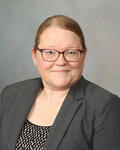 |
Kellie Mathis, M.D.Mr. Mathis is a colorectal surgeon at Mayo Clinic. Her practice is focused on colon, rectal, and anal cancer with an emphasis on the management of recurrent colon and rectal cancer. Dr. Mathis routinely utilizes robotic surgery and intra-operative radiation. She has received multiple Teacher of the Year awards from Mayo Clinic.
|
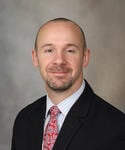 |
Travis McKenzie, M.D.Dr. McKenzie is an endocrine surgeon at Mayo Clinic whose practice is focused on the management of hereditary endocrine malignancies and adrenal surgery. He has received multiple Teacher of the Year awards from Mayo Clinic and was inducted into their Teaching Hall of Fame in 2017.
|
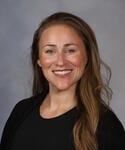 |
Mara Piltin, D.O.Dr. Piltin completed her Breast Surgical Oncology Fellowship at Mayo Clinic She has expertise in nipple-sparing mastectomy and is the PI on a randomized prospective trial investigating robotic nipple-sparing mastectomy
|
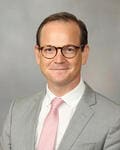 |
Patrick Starlinger, M.D., Ph.D.Dr. Starlinger completed an HPB fellowship at Mayo Clinic. His practice is focused on colorectal liver metastasis, cholangiocarcinoma, and pancreas cancer. Dr. Starlinger also runs a translational science research lab focused on liver regeneration. He has received multiple Teacher of the Year awards from Mayo Clinic.
|
Breast and melanoma faculty
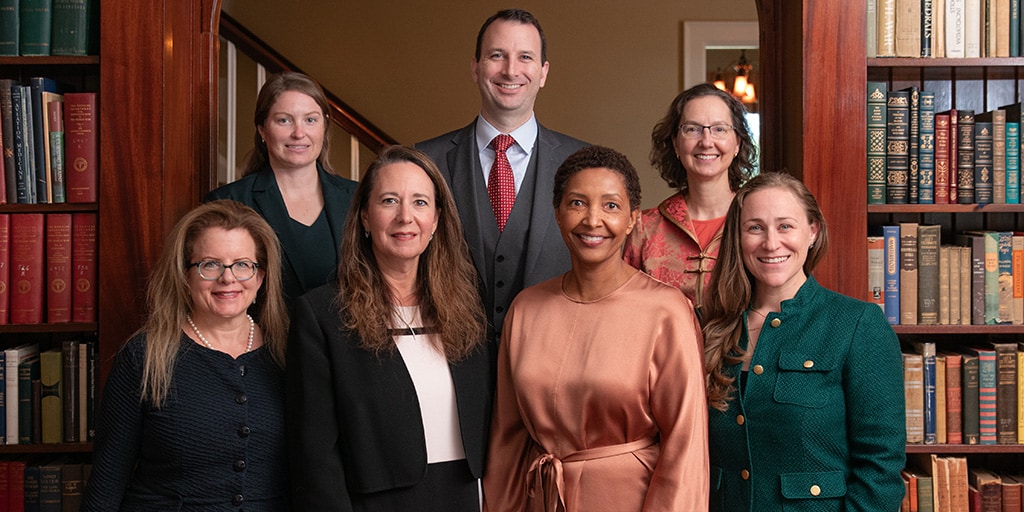
Back row, left to right: Mary Mrdutt, M.D., M.S., Jeff Johnson, M.D., Amy Degnim, M.D.
Front row, left to right: Tina Hieken, M.D., Judy Boughey, M.D., Shon Black, M.D., Mara Piltin, D.O.
Hepatobiliary and pancreas faculty
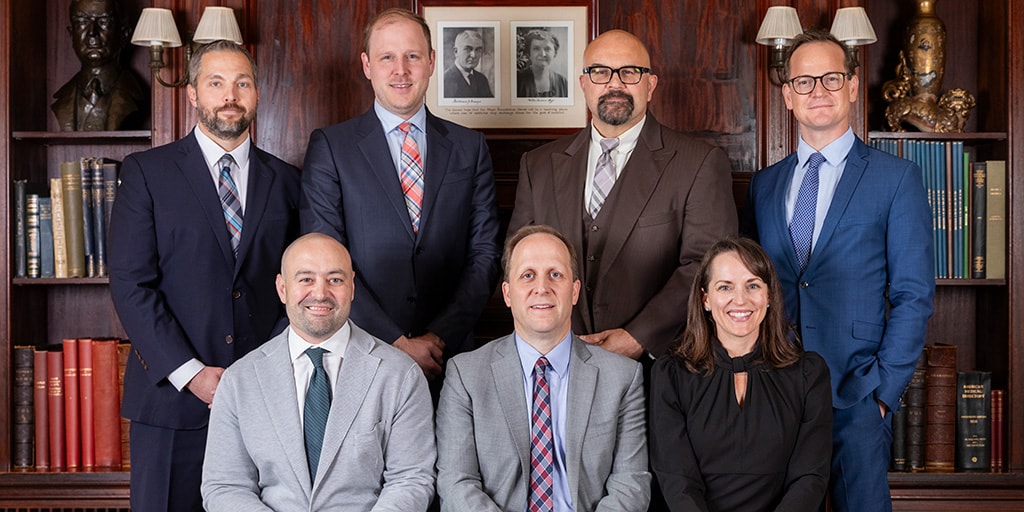
Back row, left to right: Travis Grotz, M.D., Cornelius Thiels, D.O., M.B.A., Mark Truty, M.D., M.S., Patrick Starlinger, M.D., Ph.D.
Front row, left to right: Rory Smoot, M.D., Michael Kendrick, M.D., Susanne Warner, M.D.
Colorectal surgery faculty
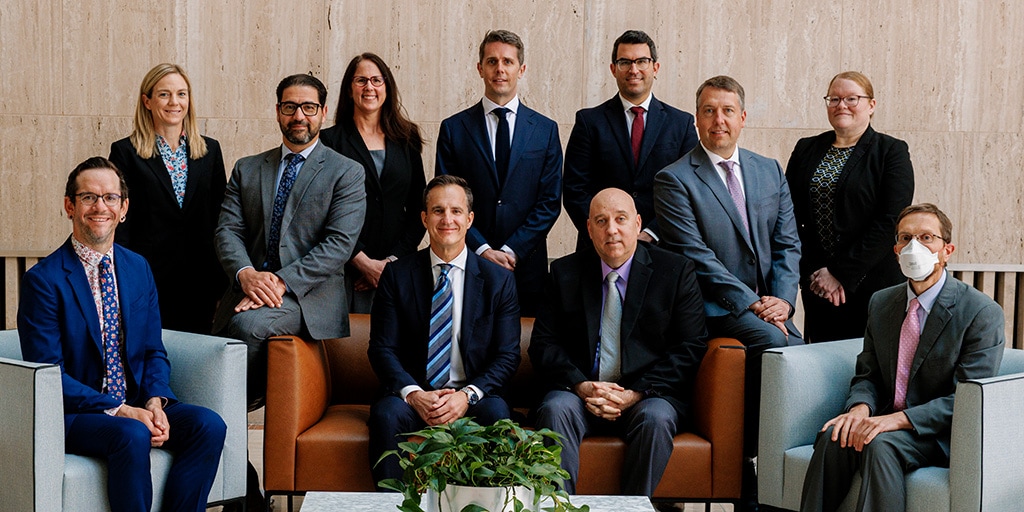
Back row, left to right: Anne-Lise D'Angelo, M.D., M.S., Sherief Shawki, M.B., B.Ch, M.D., Kristy Rumer, M.D., Ph.D., William Perry, M.B., Ch.B., M.P.H., Nicholas McKenna, M.D., M.S., David Larson, M.D., M.B.A., Kellie Mathis, M.D.
Front row, left to right: Kevin Behm, M.D., Eric Dozois, M.D., Robert Cima, M.D., Scott Kelley, M.D.
Endocrine surgery faculty
MC12YFDY.jpg)
Left to Right: Melanie Lyden, M.D.; Trenton Foster, M.D.; Travis McKenzie, M.D.; Benzon Dy, M.D.
Wellness initiatives
As a trainee, your physical and mental health are priorities to Mayo Clinic and the department. Trainees have access to several resources to promote well-being, as well as time off clinical duties to attend appointments.
- Dan Abraham Healthy Living Center
- Groups on campus
- Well-being
Dan Abraham Healthy Living Center
 Trainees have access to the Dan Abraham Healthy Living Center (DAHLC), which is located on both Mayo Clinic campuses (downtown and Saint Marys) in Rochester, Minnesota. This state-of-the-art fitness facility offers basic classes (including free weights, stretching, cardio, and more), drop-in classes, evaluation services, group training, virtual personal training, and virtual wellness coaching.
Trainees have access to the Dan Abraham Healthy Living Center (DAHLC), which is located on both Mayo Clinic campuses (downtown and Saint Marys) in Rochester, Minnesota. This state-of-the-art fitness facility offers basic classes (including free weights, stretching, cardio, and more), drop-in classes, evaluation services, group training, virtual personal training, and virtual wellness coaching.
Membership to the DAHLC is available at a low cost to trainees and their families through payroll deduction.
Video: Dan Abraham Health Living Center
Video: A look inside the Dan Abraham Health Living Center
Groups on campus
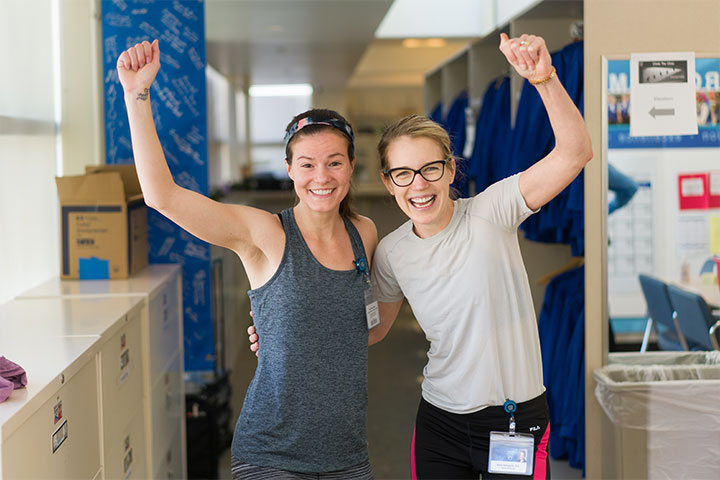 Several groups on campus help you connect with other fellows and their families, such as the Mayo Fellows Association, the Mayo Families' Connection, and Mayo Employee Resource Groups. These groups help enhance your training by providing and organizing wellness initiatives and social activities.
Several groups on campus help you connect with other fellows and their families, such as the Mayo Fellows Association, the Mayo Families' Connection, and Mayo Employee Resource Groups. These groups help enhance your training by providing and organizing wellness initiatives and social activities.
Workshops for spouses and significant others are also available.
Well-being
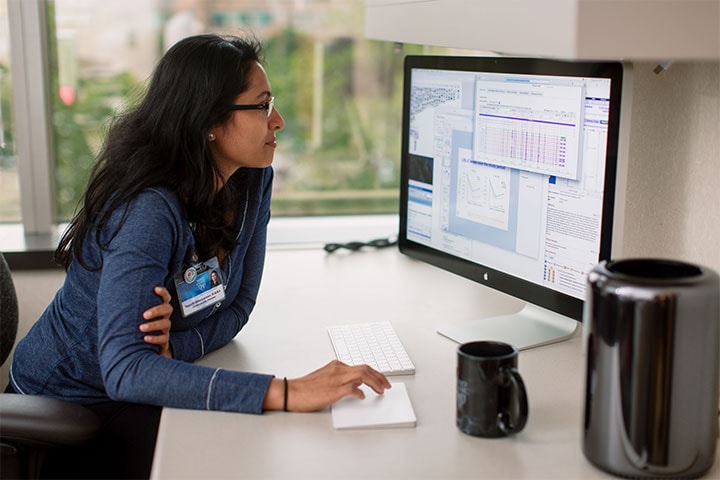 The Office of Academic Support and Well-Being provides resources to promote academic, emotional, social, cognitive, financial, and physical well-being. Career and academic services include academic advising, peer tutoring, and accommodations for learners with disabilities or health conditions. Mental health services, counseling, interview practice, and a variety of enrichment sessions on topics like budgeting, resiliency, and stress and burn-out are also available through the Academic Support and Well-Being office.
The Office of Academic Support and Well-Being provides resources to promote academic, emotional, social, cognitive, financial, and physical well-being. Career and academic services include academic advising, peer tutoring, and accommodations for learners with disabilities or health conditions. Mental health services, counseling, interview practice, and a variety of enrichment sessions on topics like budgeting, resiliency, and stress and burn-out are also available through the Academic Support and Well-Being office.
More from Mayo Clinic School of Graduate Medical Education
/0x0:512x512/prod01/channel_2/media/mccms/content-assets/academics/residencies-and-fellowships/3319834_0363-512X512.jpg)
Choosing Mayo Clinic
/0x0:512x512/prod01/channel_2/media/mccms/content-assets/shared-documents/campus-MEYR6203-pic-tile.jpg)
Rochester, MN
Campus and community
/0x0:512x512/prod01/channel_2/media/studio-sites/mccms-reference-guide/512X5121676671_3824027_0010_C.jpg)
Stipend and benefits
Mayo Fellows Association (MFA)
The Mayo Fellows Association (MFA) offers a peer and social support network for residents and fellows and their families with social events, athletics, and advocacy. The MFA also holds an annual resident and fellow appreciation event open to all trainees with complimentary massages, stress-reducing activities, and social support.
/0x0:512x512/prod01/channel_2/media/mccms/content-assets/academics/residencies-and-fellowships/complex-general-surgical-oncology-fellowship-mn/complex-gen-surg-onc-fellowship-mn-512X512-WF4198400-2024-03-14-0003.jpg)
/0x0:440x220/prod01/channel_2/media/mccms/content-assets/campus-amp-community/minnesota/440X220_sidebar-mayo-clinic-rochester-mn-3554057-0012.jpg)